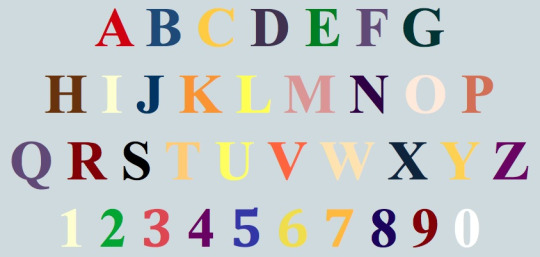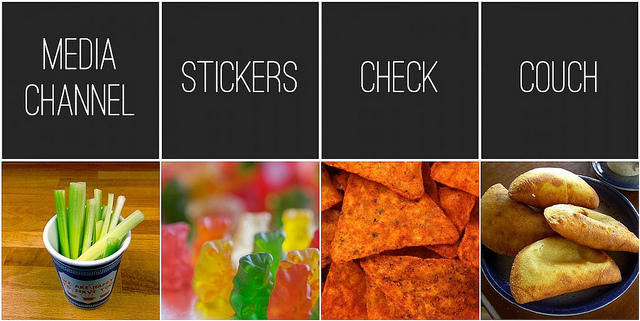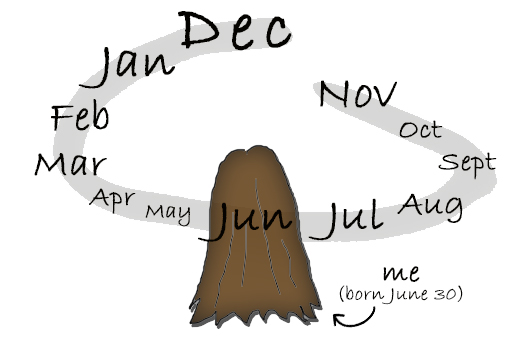The Science Behind Why Some People Can Taste Words

By:
I was 7 years old the first time I ever tasted a word.
My family was discussing the Bible, and my sister mentioned the Tree of Knowledge in the Garden of Eden. I'd heard the word "knowledge" many times, but, suddenly, it reminded me of garlic bread. Every time I ate garlic bread after that moment, the word "knowledge" popped into my head; the two seemed to go together.
I started tasting words more as I aged. I specifically remember associating the word "algebra" with the Progresso chicken rotini soup I had every day after high school. When I went to college, I started tasting words during almost every meal.
I had to like a food for it to be associated with a word. Words such as "college" and "school" reminded me of sweets such as ice cream, doughnuts, and warm cookies. Others, such as "job," "edit," "write," and "work," reminded me of salty foods such as burritos and pastas. The word "chicken" tasted like, well, chicken.
I never told anyone about my word-tasting ability because I feared it meant there was something wrong with my brain. I already suffer from crippling anxiety and accompanying obsessive thoughts, both of which are highly stigmatized in our culture, so I didn't want to add another mental illness to my list by examining where this came from. There were times I even tried to train myself out of associating words with food because it all seemed so unusual. I succeeded for a while, but I found food less enjoyable when I pushed words out of my mind during meals.
It wasn't until a hair appointment that I learned there's a name for my word tasting: synesthesia, a rare neurological phenomenon that affects anywhere from 1 to 12 percent of the population, according to synesthesia researcher Clare Jonas. Synesthesia is often described as a joining of the senses. Many artists and creative types have it.
There are many types of synesthesia. Some might assign colors to music, colors to numbers, colors to smells, colors to names, personalities to numbers, colors to foods, words to colors, numbers to people, or in my case, foods to words. Most synesthetes (as we're called) have 3.8 forms of synesthesia on average, according to Peter Grossenbacher, a board member of the American Synesthesia Assocation and a contemplative psychology professor at Naropa University.
 Madeleine 92 Tumblr - tumblr.com
Madeleine 92 Tumblr - tumblr.com
From a quick Google search, I learned that I have "lexical gustatory synesthesia," in which "words trigger accompanying food sensations." An estimated 0.2 percent of the population has this, so it's a relatively rare form of synesthesia.
 Tokyohanna Blogspot - blogspot.com
Tokyohanna Blogspot - blogspot.com
Not all synesthetes have identical experiences. Someone else with lexical gustatory synesthesia might not taste the word "editor" when they think about salty food, as I do. But the shared understanding of living with synesthesia brings a lot of these people together on various online forums and groups.
What experts say about synesthesia.
Synesthesia is frequently seen in children and usually fades around adolescence, "when there are a lot of changes in hormones, brain chemistry, and brain connections," according to Jonas, a synesthesia researcher who shares the ability.
Jonas has spatial sequence synesthesia, which entails seeing numerical sequences as points in space. As blogger Rebecca Turner described it, "When I think of the days of the week or the months of the year, I can see them defined spatially in my mind's eye."
 World of Lucid Dreaming - world-of-lucid-dreaming.com
World of Lucid Dreaming - world-of-lucid-dreaming.com
My synesthesia actually grew stronger in my teens, which is relatively rare but not unique. Edward Hubbard, a professor of educational psychology at the University of Wisconsin-Madison and decades-long synesthesia researcher, told ATTN: that he has encountered a young woman whose synesthesia intensified as she started puberty.
Synesthesia runs in families.
Synesthesia also appears to be genetic. In the 1800s, Sir Francis Galton first discovered that synesthesia runs in families, Hubbard told ATTN:. But while synesthesia may be passed on, that's not true of specific forms of synesthesia, according to a study by well-known synesthesia researcher Julia Simner, cited by Hubbard.
"A synesthete who has colors for music, for example, might have a child who has colors for letters and numbers, but not for music," Hubbard told ATTN:. "The typical finding is that it goes from parents to their children. So we see lots and lots of families where we can actually see that it goes straight from, for example, the father to the daughter, the mother to the daughter or to the son."
Synesthesia stigma.
According to experts, the fear I experienced as a synesthete isn't uncommon. Synesthetes generally fit into three different categories: those who are ashamed of their synesthesia, those who think everyone experiences synesthesia, and those who learn at a young age that synesthesia is rare but does not mean a person is crazy, Hubbard explained.
"There were those who said something to a friend when they were a kid, and their friend looked at them weird, and they feel like they've been keeping this deep, dark secret for all of their lives," Hubbard told ATTN:, describing the synesthetes he's observed in his research. "When they learn that there's a name for this thing that they do and that lots of people do it, they're hugely relieved."
Many synesthetes feel stigmatized and worry that their synesthesia means something is wrong with them, Grossenbacher told ATTN:. "I see [it] more ... as a dysfunction of our society rather than a cause lying with a person with synesthesia," Grossenbacher said. "Feeling insecure, odd, crazy, different, or questioning [oneself as a synesthete] is a relatively common phase, and I hope to minimize the duration of that phase or bypass it altogether by letting people know about synesthesia."
The benefits of synesthesia.
Synesthesia is often found in creative individuals, and synesthesia has been shown to aid memory, but only as one's memories pertain to synesthetic experiences, Hubbard said.
"Synesthetes will tell us things that are really interesting, like they can't remember her name, but it was a green name, so it must have been Valerie or Vivian," Hubbard told ATTN:. "One of the things that this suggests is they're basically getting for free an additional memory queue. And there's an old literature on memory processes that is called the dual-coding route, and this suggestion is that we in fact get a memory advantage if, for example, we hear a word, and we form a mental image of it. For a synesthete, we see that they have pretty much automatically some sort of image that goes along with reading a word or seeing things, and so that might be part of how they get the advantage. So part of what we're after now is trying to test that idea."
Though many synesthetes experience anxiety and fear, as I did, the majority love their synesthesia and wouldn't want to live any other way. Many remark that synesthesia actually enhances their artistic abilities. Singers Lady Gaga, Tori Amos, and Billy Joel, for example, are all proud synesthetes.
"[Synesthesia is] the only way that I can identify what something sounds like," musician Pharrell Williams, who sees color in music, told NPR in 2013. "I know when something is in key, because it either matches the same color, or it doesn't. Or it feels different, and it doesn't feel right."
The downside of synesthesia.
The majority of synesthetes are positive or "neutral at worst" about having it, Jonas told ATTN:. "Most people are generally very positive about it," she said. "But again, because I'm a synesthesia researcher, most of the people I talk to about it are going to be people who are interested in it."
Not all synesthetic experiences revolve around beautiful colors or tasty words. Jonas said that she used to see colors in smells up until she was about 14. She recalled reading a copy of "Winnie the Pooh" that had been in her attic and associating it with an ugly brown color.
"It smelled really musty in the way that books do when you leave them up in the attic," she said. "The smell was like a horrible brown smear to me. It was actually quite a relief when the colors went away, because it would be a horrible smell but also a horrible color. It was not very nice."
Negative experiences with synesthesia tend to be fairly harmless, like how I overate to consume more words. But on rare occasions, it can pose real challenges. One adult synesthete Grossenbacher encountered had such strong visual experiences when hearing sounds that the person was unable to get a driver's license.
"The visual concurrence, as we call them, that are synesthetically induced, were somewhat opaque, so it would be hard to see through it, and also very distracting," he said of this synesthete. "That's exceedingly rare, but that's one instance that I'm aware of that's really caused a limitation."
Embracing the gift.
Synesthesia might be uncommon, but researchers assert that it's important to try to understand it.
"Every human being views life through a unique window in this shared universe," Grossenbacher said. "Synesthetes have such a different view that we can all benefit from recognizing our unique perspectives. But having it pointed out every once in a while from someone whose perspective is so different is an excellent reminder of the uniqueness that we have."
My synesthesia worried me for so long, now I embrace how great it feels to combine words and food, my two favorite things. I honestly can't imagine what eating would be like without this experience.
For more information on synesthesia, visit the American Synesthesia Association website.
